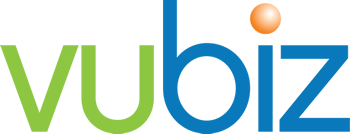 |
Written by Liz McDermott |
The interview process is a critical element in the hiring journey, bridging potential candidates and organizational success. As HR professionals, mastering the art of interviewing is not merely beneficial; it's essential. With the proper techniques, you can transform interviews from routine assessments into impactful conversations that reveal candidates' true potential.
This comprehensive guide delves into essential strategies to enhance your skills for interviewing and ensure you select the best talent for your organization.

Understanding the Interview Process
The interview process encompasses various stages, each designed to evaluate candidates effectively. By grasping the nuances of these stages, HR professionals can streamline their approach and ensure a thorough assessment of each candidate.
Stages of the Interview Process
-
Preparation: This is the foundation of a successful interview. Review the job description and identify the key competencies required for the role. Develop a list of questions tailored to these competencies to guide the conversation.
-
Conducting the Interview: Conduct a structured dialogue that allows candidates to showcase their skills and experiences. This phase often includes open-ended and situational questions to gauge their problem-solving abilities.
-
Evaluation: After the interview, assess the candidate's responses against predetermined criteria. This includes evaluating their skills, cultural fit, and organizational growth potential.
-
Feedback and Decision-Making: Collect feedback from all interviewers involved and discuss the candidates' strengths and weaknesses. This collaborative approach fosters informed decision-making.
Types of Interviews
Understanding the various types of interviews can significantly enhance your interviewing strategy:
-
Structured Interviews: These utilize a fixed set of questions, ensuring consistency across candidates and making it easier to compare responses.
-
Unstructured Interviews: These are more conversational and flexible, allowing for a natural flow of dialogue. While they can reveal deeper insights, they may also lead to inconsistencies in assessment.
-
Behavioral Interviews: Focused on past experiences, these interviews help predict future performance based on how candidates have handled similar situations.
-
Situational Interviews: Candidates are presented with hypothetical scenarios to assess their problem-solving and critical-thinking skills.
-
Panel Interviews: Multiple interviewers evaluate a single candidate, providing diverse perspectives on their fit for the role.
-
Virtual Interviews: These interviews are increasingly popular and allow for remote assessments, offering flexibility and convenience.
Preparing for the Interview
Preparation is key to conducting effective interviews. Here are some strategies to enhance your readiness:
Research Candidates Thoroughly
Before the interview, review candidates' resumes, portfolios, and relevant work samples. Familiarize yourself with their career history and accomplishments to tailor your questions effectively.
Develop a Structured Framework
Utilize competency-based models to create a structured interview format. This ensures that all critical areas are covered and allows for consistent candidate evaluation.
Customize Questions
Tailor your interview questions to align with the role's specific requirements and your organization's values. This personalization will foster a more engaging and relevant dialogue.
Prepare for Common Interview Questions
While each interview is unique, preparing for frequently asked questions can help guide the conversation. Consider questions that explore candidates' motivations, strengths, and areas for improvement.
Mastering Interview Techniques
To conduct effective interviews, HR professionals must employ various techniques that elicit meaningful candidate responses.
Active Listening
Active listening is crucial during interviews. It involves fully engaging with candidates and paying attention to their words, tone, and body language. This lets you pick up on subtle cues that reveal their true feelings and motivations.
The STAR Method
The STAR method (Situation, Task, Action, Result) can help structure your questions, particularly in behavioral interviews. This technique encourages candidates to provide specific examples of their past experiences, offering more profound insights into their capabilities.
Empathy and Rapport Building
Connecting with candidates can create a comfortable environment, allowing them to open up and share their experiences more freely. Use warm, inviting language and show genuine interest in their responses.
Assessing Candidate Responses
Evaluating candidate responses is a critical part of the interview process. Here's how to do it effectively:
Look for Specific Examples
Encourage candidates to provide concrete examples that demonstrate their skills and experiences. This validates their claims and gives you a clearer picture of their capabilities.
Evaluate Soft Skills
Assess candidates' soft skills, such as communication, teamwork, adaptability, and technical expertise. These attributes are often key indicators of how well they will fit into your organization's culture.
Use a Scoring System
Implement a standardized scoring system to evaluate candidates objectively. This can help minimize biases and ensure that each candidate is assessed based on the same criteria.
Leveraging Technology in Interviews
In today's digital age, technology can enhance the interview process significantly. Here are some tools to consider:
Video Interview Platforms
Utilizing video conferencing tools allows for remote interviews, making it easier to connect with candidates regardless of their location. Familiarize yourself with the features of these platforms to ensure a smooth experience.
AI-Powered Screening Tools
AI can help screen candidates by analyzing resumes and identifying top contenders based on predetermined criteria. This can save time and streamline the recruitment process.
Applicant Tracking Systems (ATS)
Implementing an ATS can help manage candidate applications, track their progress through the hiring process, and facilitate communication between interviewers.
Avoiding Common Interviewing Mistakes
To ensure a successful interview process, you must know common pitfalls that can undermine your efforts.
Unconscious Bias
Be mindful of unconscious biases that may affect your judgment. Implementing blind screening processes and diverse hiring panels can help mitigate these biases and promote fair assessments.
Generic Questions
Avoid using vague or generic questions that fail to elicit meaningful responses. Instead, focus on role-specific inquiries and encourage candidates to showcase their relevant skills and experiences.
Neglecting Follow-Up Questions
Don't hesitate to ask follow-up questions to clarify ambiguous responses. This will demonstrate your engagement and ensure a comprehensive evaluation of the candidate's abilities.
Enhancing Candidate Experience
The interview process assesses candidates and reflects your organization's culture and values. Here's how to enhance the candidate experience:
Create a Welcoming Environment
Ensure that the interview space is comfortable and inviting. A warm greeting and clear explanation of the interview process can help candidates feel at ease and ready to engage.
Allow for Candidate Questions
Encourage candidates to ask questions during the interview. This fosters a two-way dialogue and allows candidates to assess whether your organization aligns with their values and career goals.
Provide Timely Feedback
After the interview, offer constructive feedback to candidates regardless of the outcome. This will demonstrate respect for their time and effort and enhance your organization's reputation.
Continuous Improvement in Interviewing
The hiring landscape is constantly evolving. To stay ahead, HR professionals should commit to continuous improvement in their interviewing techniques.
Attend Workshops and Training
Participating in workshops and training sessions can refresh your skills and introduce you to new interviewing methodologies. This ongoing education ensures that you remain adept at identifying top talent.
Seek Feedback from Peers
Encourage feedback from colleagues involved in the interview process. This collaborative approach can highlight areas for improvement and foster a culture of continuous learning.
Stay Informed on Industry Trends
Keeping abreast of the latest trends in recruitment and interviewing can provide valuable insights into best practices and innovative techniques.
How Vubiz Helps HR Professionals Nail Interviews
Mastering the interview process is a multifaceted endeavor that requires preparation, skill, and a commitment to continuous improvement. By understanding the various stages of the interview, employing effective techniques, and leveraging technology, HR professionals can ensure a robust hiring process that identifies the best talent for their organization.
Enhancing the candidate experience and actively seeking feedback can help organizations cultivate a positive reputation that attracts top candidates. Vubiz's Interviewing Job Candidates and Skills for Interviewing courses can help you embrace these strategies and transform your interview process into a powerful tool for success.
